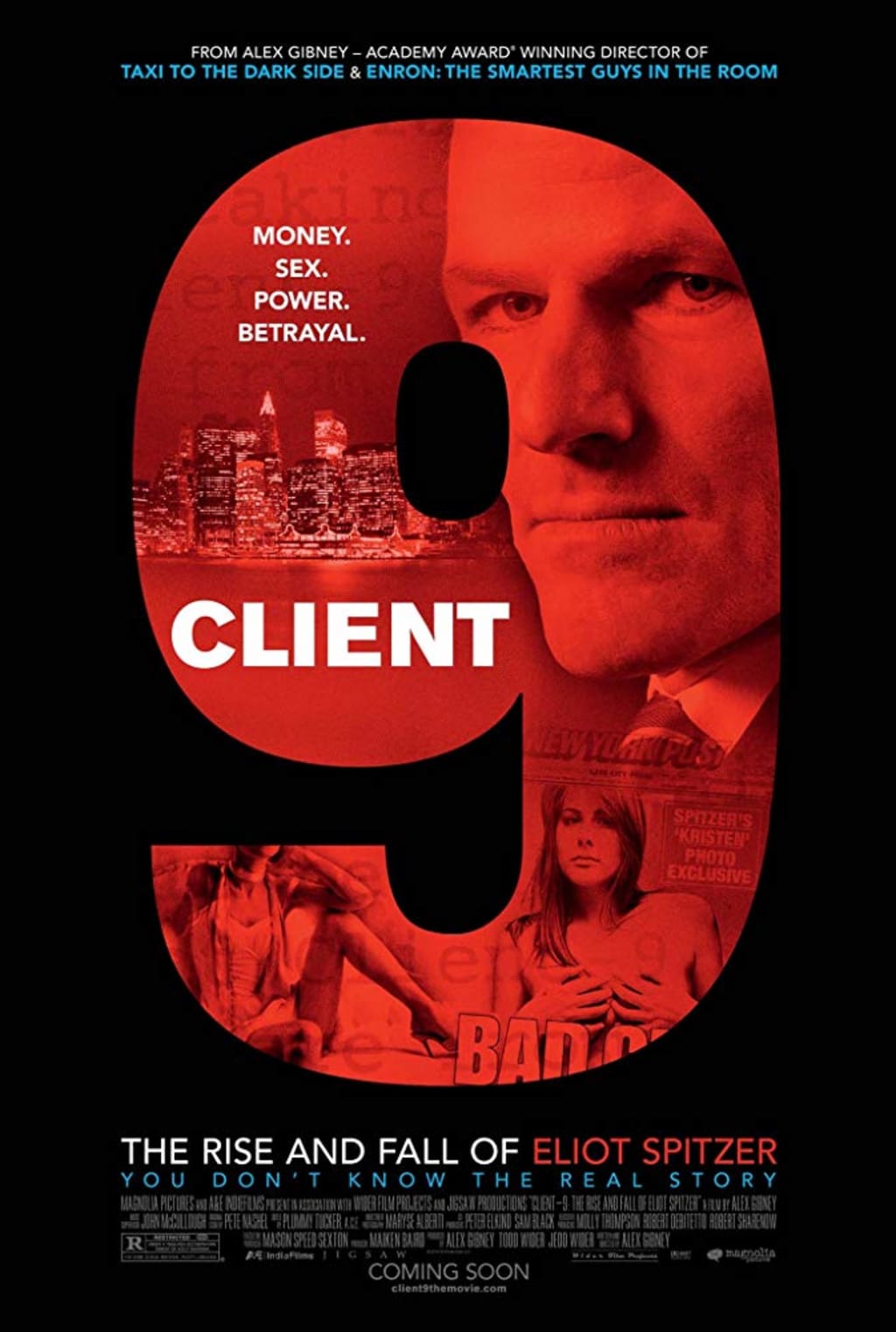Oscar Winning Filmmaker Unravels Eliot Spitzer Scandal in New Documentary
A Look Back at 2010 Event at Jacob Burbs

Studio : Magnolia Pictures
As the Sheriff of Wall Street, Eliot Spitzer certainly accumulated some powerful enemies. And eventually they started talking to each other, according to Alex Gibney, who appeared at the Jacob Burns Film Center with his documentary, Client 9 : The Rise and Fall of Elliot Spitzer. But as the governor's dictatorial style intersected with the well chronicled sex scandal, the three act drama that was his political career could have no other ending.
In comparing Bill Clinton's scandal to an audience of about 100, he said "Spitzer was off the clock and not receiving favors from an intern in the Oval Office." Nonetheless, any possibility of fighting the scandal was non-existent. Spitzer’s abrasive approach had even lost him support of his own party.
Spitzer's own words on screen clarified this sentiment. "There might be a few tackled bodies left on the field," the Governor said in describing the legislative process as he pursued it.
“You can't force people to go along, and you have to have some capacity for compromise,” said the Oscar winning filmmaker of Taxi to the Dark Side.
The powers of parliamentary procedure aside, Gibney's central premise was more concerned with how concentrated wealth and power skews the whole system and led to Spitzer's downfall. “When you see how much money goes through the system,” Gibney said, “it's not hard to connect the dots back to their sources.”
Among Spitzer's targets was AIG CEO Hank Greenberg. Discovering some serious book cooking and irregularities regarding the mortgage industry, Spitzer's investigations eventually put Greenberg out the door.
The misconception is that it was legal proceedings that cost Greenberg his job. "His own board forced him out because they didn't trust him," said Gibney.
As for an indictment, that's where the rest of us can follow the money. Attorney General Spitzer was told to back off Greenberg by the U.S. Attorney General, Michael Garcia. Greenberg escaped charges and Garcia would later lead the investigation against Spitzer.
Prompted by a wire transfer, the film claims that the FBI receives information on 3,400 suspicious transfers everyday. "Some one had to have had a very particular insight into that transaction," speculated Gibney.
At the same time, the FBI report included a brief summary of the first eight clients and five pages on Client Number 9. It also read like a mystery in search of a story and was leaked to reporters. In addition, aides claimed a sense of surveillance around the governor. A charge that the film strongly implies from an admission by investment banker Ken Langone.
No fan of Spitzer either, the duo previously butted heads over the exorbitant pay of NYSE CEO Richard Grasso, and Langone made no bones about the role that serendipity played in his part of Spitzer’s downfall.
The mogel stated on CNBC that "a friend" saw Spitzer in the post office making a large money transfer. Langone called it an act of God, but the film and Mr. Gibney left the chance encounter open to interpretation.
Asked whether it concerned him that he had created such powerful enemies - especially in light of his illegal activity - Spitzer deadpanned the point. "Obviously," he said, "It didn't concern me enough."
Nonetheless, the governor reiterated that is was his actions that left him open to investigation. But Gibney couldn't help pointing out an article by Scott Horton of The Daily Beast on where the events left Garcia and all the high powered entanglements. “Garcia has moved on to a prestigious law firm with both a very high salary and strong Republican connections,” said Gibney.
As for media reports that the governor was addicted to prostitutes, Spitzer was matter of fact. He rationally explained that he wasn't getting what he wanted out of his marriage and extramarital affairs come with too many strings.
Not giving him a pass, after sitting down to several two hour long interviews, said Gibney, "He is the ultimate compartmentalized individual."
In the end, Gibney expressed a disappointment that many of those who sent him to Albany probably felt. "A lot of us were depending on him to fight the good fight and he screwed it up," concluded Gibney.
Please Like My Movie Page on Facebook
Author can be reached at [email protected]
About the Creator
Rich Monetti
I am, I write.






Comments
There are no comments for this story
Be the first to respond and start the conversation.